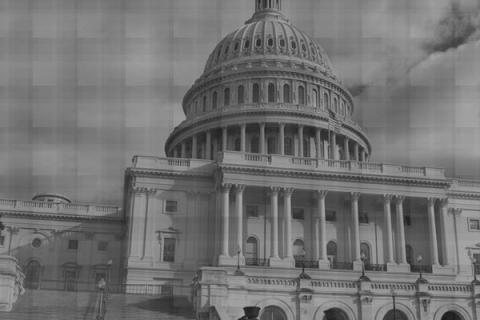Throughout this year's election season, talk of the pitfallsof partisanship permeated the national conversation while the citizenry lauded candidateswho pledged to tear down barriers and end politics as usual. The prospect ofchange spurred an inordinate share of voters to shun party loyalty and embracepragmatism.
The election became a resounding critique of the ultraisticpolicies and parochial doctrines that crippled a national economy and alienatedlarge segments of the populace.
But the elocution of our aspiring representation fell short.The debates and town hall sessions failed to address the structural flaws inthe electoral process that impede participation and fuel partisan quibbling.One such defect is the way we choose our candidates.
We do ourselves a disservice by granting political partiesthe responsibility of selecting our public office applicant pools. Limiting ourchoices according to party affiliation (or lack thereof) creates a potentialobstacle to voting one’s better judgment. Closed-primaries hold leadersaccountable only to members of their party rather than the diversifiedelectorate.
Such a system isprone to causing rifts between constituents and leadership and dissentingvoices are muffled in the process. Policymakers take office with partialmandates while voters from the losing parties put their demands on hold untilthe next election.
A few states have chosen to tackle the problem byinstituting practical electoral reforms. Among them, the state of Washington is setting anexample with promising new steps toward non-partisan elections. If California’s passage of Proposition 11 (the redistrictingmeasure) serves as a bellwether, then current efforts to adopt Washington’s method mayprove successful.
In October, Steve Peace, a former member of the state Legislatureand chairman of the California Independent Voter Project, submitted a proposalto the attorney general’s office that would model our elections after Washington’s top-two primary.
Under the top-two primary system, voters would not declare theirparty membership as a prerequisite to casting ballots for candidates seekingstate office. The two candidates receiving the most votes would advance to thegeneral election.
Supporters of the measure contend that eliminating partisanregistration would increase cooperation across party lines. GovernorSchwarzenegger, who recently made an executive order forcing the Legislature toexpedite an agreement on the state budget, supports the initiative.
The initiative is not entirely new to the state. In March of1996 voters passed similar reforms with Proposition 198. Four years later,after much opposition from political parties, the U.S. Supreme Court ruled themeasure unconstitutional.
Political parties likely fear that independent voters andmembers of other camps would be able to influence their candidates’ chances ofadvancing to the general election. Perhaps, but it is more likely the changewould force frontrunners from major parties to offer platforms with measurablypluralistic visions. This might increase the probability of say, a Republicancandidate in Sacramentoweighing the demands of Peace and Freedom Party voters.
Let’s be frank. Party identity ain’t what it used tobe.
An article Time Magazineentitled The New Liberal Order cited a 2005 Pew Research Center survey that“identified a new group of voters it called ‘pro-governmentconservatives’”. The term refers to anemerging faction of conservatives who break from tradition by “endorsinggovernment regulation and government spending.”
Our political climate is evolving in a way that rejects thepolitics of immoderacy. Now we must ensure our electoral process advances in amanner that reflects this progress.
